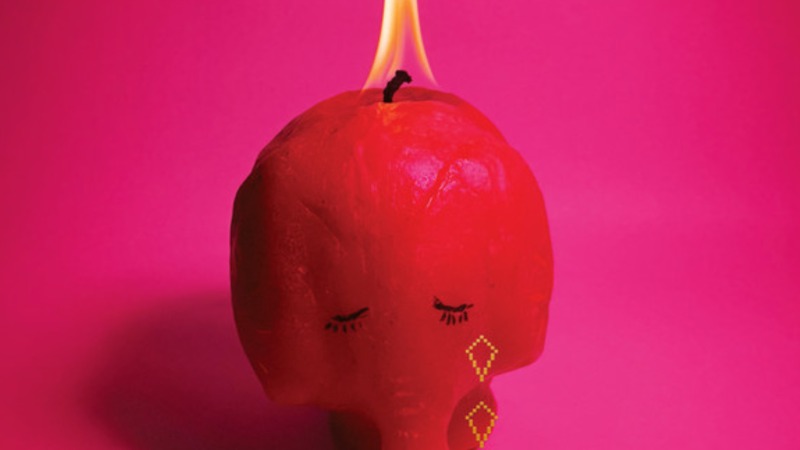Arcade Fire Hope You’ll Forget About the Pink Elephant in the Room
The Canadian band’s seventh album is clunky, poorly mixed, offensively self-serving, and annoyingly regurgitated.

Arcade Fire have a place in the 21st century indie rock history books. To be honest, it’s quite possibly the only laurel the band has left to rest on. Many regard their 9-year run from Funeral through Reflektor as one of the strongest of the mid-2000s and early-2010s, if not the strongest of that era. Arcade Fire, the Strokes, Radiohead—these are names lauded as originators, as boundary pushers, needle movers, and the voices of a generation. Survey the rock and roll landscape 20 years ago and most music blogs may have had you convinced that Kid A, Is This It, and Funeral were as integral to the new millennium as Revolver and Pet Sounds were to the mid-1960s.
But, no matter what you think of Funeral or The Suburbs, there is no denying that Arcade Fire have not been a relevant name in music since 2013—though I’d argue that their stock began plummeting soon after they won a Grammy for Album of the Year in 2011. Reflektor is a record that, to my ears, ages worse with every listen. Though, now that Pink Elephant exists, perhaps Reflektor’s image can be restored. As for WE and Everything Now? Both titles are still firmly subterranean (and their high review scores on this site are none of my business), but I do miss when Arcade Fire was just entering the twilight of their relevance—when the rumors about them were still just whispers and they were selling branded fidget spinners.
Pink Elephant, Arcade Fire’s first release since WE, comes with a catch: You have to achieve a certain level of cognitive dissonance to even press play on a mess like this. Three years ago, Butler was accused of sexual misconduct by multiple women, as was reported by Pitchfork. Remarks about extramarital relationships, unwanted contact, sexting, age-gaps with power imbalances, and sexual assault filled the article. When asked to comment on the allegations, Butler responded to Pitchfork via a crisis PR expert named Risa Heller, who communicated an offer to the publication: conversations with women who had consensual sex with the musician. His wife Régine Alexandra Chassagne’s response? “He has lost his way, and he has found his way back.”
I believe that using an artist’s rap sheet in an evaluation of their work can be useful, but not always. Just look at this subtitle in a recent headline from The Telegraph: “an assured comeback from the brink of cancellation.” In the case of Arcade Fire, writing about their new album without including the context of the allegations against Butler would be a moral failure, regardless of where you land in the “separating the art from the artist” debate. This is especially true considering how much of Pink Elephant’s subtext is kneecapped by thinly-veiled attempts to repair a broken ego: The high-horse posturing in the “clean up your heart” charade of “Stuck in My Head” is an especially cocksure failure, while Butler likening the prejudices held against him to brains being hacked and then demanding that his listeners “take your mind off me” is equally self-involved.
What’s worse, however, would be to use the allegations against Butler as a launching point for some argument that Arcade Fire have been through Hell and lived to tell the tale, so to speak. This band is not “coming back” from anything but the consequences of their own harm towards others. Win Butler was not convicted of a crime. Cancel culture doesn’t exist, but accountability does—and the court of public opinion can be a merciless one. But the way that you respond to that opinion, however, is a crucial next step. Reading the lyric sheet for Pink Elephant, you’re hit with 40 minutes of denial veiled as profundity from one of the most categorically superficial bands of the last 25 years. Your coworker probably loves this album. From the jump, Arcade Fire treats its listeners like they’re stupid, playing coy about moral turmoil by making hippy-dippy, “I’m a real boy” synth-rock that’s remarkably one-dimensional. “My heart’s full of love,” Butler shouts on “Year of the Snake.” “It’s not made out of wood.” Okay Pinocchio, you’re 45 years old.
Pink Elephant isn’t merely an album released after a “cancellation,” or what Apple Music has labeled as “three tumultuous years.” It’s a bad gesture of faith from a band that’s woefully out of touch. Seriously, this album is clunky, poorly mixed, offensively self-serving, and annoyingly regurgitated. The multi-part suites that made Arcade Fire’s previous releases sound like boom-or-bust sagas have been swapped out for lackadaisical, dogmatic doses of soulless, false glory. Unfortunately, most of Pink Elephant’s best moments are the instrumental passages, like “Open Your Heart or Die Trying,” “Beyond Salvation,” and “She Cries Diamond Rain.” That is not an immediate dig at Butler or Chassagne, but a tip of the cap to Daniel Lanois, the Canadian producer best-known for his longtime relationship with U2, his work on Bob Dylan’s Time Out of Mind, and a recent foray into videogame soundtracks.
-

-

-

-

-

-

-

-

-

-

-

-

-

-

-

-

-

-

-

-

-

-

-

-

-

-

-

-

-

-

-

-

-

-

-

-

-

-

-

-








































